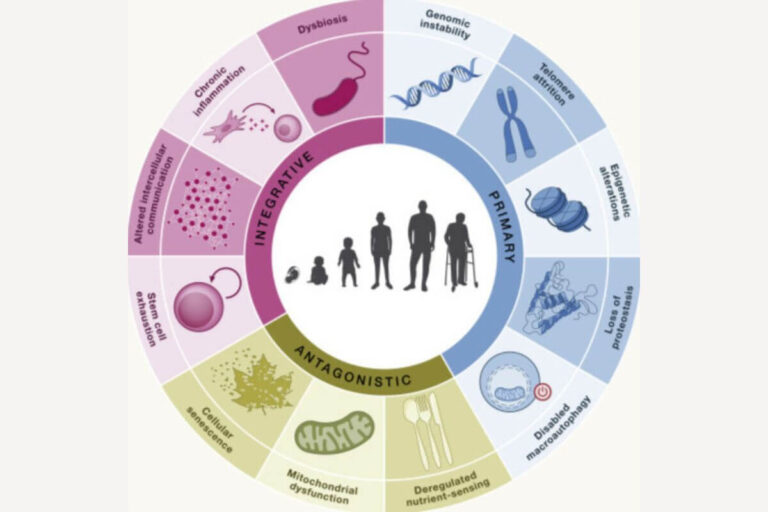Researcher Saul Newman was recently awarded an Ig Nobel Prize 2024 for his work questioning the concept of “Blue Zones”. In these famous regions people are purported to live exceptionally long lives. But Newman’s research exposes significant flaws in the data supporting claims of extreme longevity in these areas, challenging established beliefs.
What are “Blue Zones”?
Blue Zones are areas noted for the unusually high age of their inhabitants, with claims that specific lifestyle factors, such as diet, physical activity, and social bonds, contribute to their longevity. Well-known examples include Okinawa in Japan, Ikaria in Greece, and Sardinia in Italy. These regions have been featured in books and media as places where one can supposedly find the “secrets to a long life.”
Blue Zones don’t exist. The data behind the concept is “hilariously flawed”, Newman says.
What did Newman’s research reveal about the Blue Zones?
Dr. Saul Newman discovered serious flaws in the age records of populations in these areas. In Okinawa, a 2010 audit by the Japanese government showed that 82% of reported centenarians were actually deceased. Many of these areas have historically had poor record-keeping practices. In Okinawa, the concentration of centenarians correlated with the proximity to archives destroyed during World War II. Similarly, data from Greece and Italy indicated that many registered centenarians were either missing, deceased, or possibly involved in pension fraud.
Another notable observation is that these areas often coincide with low average life expectancy and poverty. Newman suggests that the “secret” to reaching age 110 in these regions is as much about the lack of birth certificates and avoidance of death registration as it is about lifestyle.
What does this mean for longevity research?
That said, this does not mean we should dismiss all positive claims about the Blue Zones. Many of the habits highlighted in these areas – such as healthy eating, daily movement, and social connectedness – positively impact both health and longevity. However…
Newman’s findings suggest that we need to critically examine claims about Blue Zones and their links to long life. Many health recommendations and diets based on these myths – such as drinking wine daily – lack solid scientific backing and can, in some cases, be harmful. Newman’s insights make it clear that future longevity research should focus on more accurate methods of age verification, rather than relying on potentially misleading data from these regions.

Why does the Blue Zones myth persist?
An attractive idea
Blue Zones offer an appealing notion that there are “secrets” to a long and healthy life. This resonates with people’s desire for simple solutions to complex health issues.
Focus on lifestyle factors
The concept emphasizes several positive lifestyle factors generally regarded as healthy, regardless of their link to extreme longevity:
- A healthy diet rich in plant-based foods
- Regular physical activity
- Strong social bonds and engagement with family and community
- Stress management and a sense of purpose in life
These recommendations align well with general health advice, lending the concept credibility.
Commercial interests in the Blue Zones
An entire industry has developed around Blue Zones, with books, lectures, Netflix documentaries, and lifestyle programs. This creates financial incentives to continue promoting the idea.
Reluctance to reevaluate established ideas
Once an idea takes hold in popular culture, it can take time for new critical research to gain traction. Many continue to support the concept despite its scientific basis being questioned.
Lack of critical scrutiny
Media coverage of Blue Zones has often been uncritical and sensationalized, contributing to the spread of the idea without highlighting methodological issues.
Despite significant flaws in the research behind Blue Zones, as demonstrated by Saul Justin Newman, the concept remains popular. This underscores the importance of critical thinking and careful scrutiny of health trends, even when they appear reasonable on the surface.
What is the Ig Nobel Prize?
The 2024 Ig Nobel Prize for Saul Newman’s work was awarded at MIT in Cambridge, USA, on September 12. It’s a satirical award that celebrates unusual, trivial, or humorous achievements in scientific research. The Ig Nobel Prize aims to “honor achievements that first make people laugh, and then make them think.” While the Ig Nobel Prizes are satirical, they often highlight research that can lead to important breakthroughs. The Ig Nobel Prize was created in 1991 by Marc Abrahams, the editor and co-founder of the scientific humor magazine Annals of Improbable Research. The awards are presented annually, typically around the same time as the real Nobel Prizes. One notable winner is Sir Andre Geim, who received the prize in 2000 for levitating a frog and later won a real Nobel Prize in Physics in 2010 for his work on graphene.







